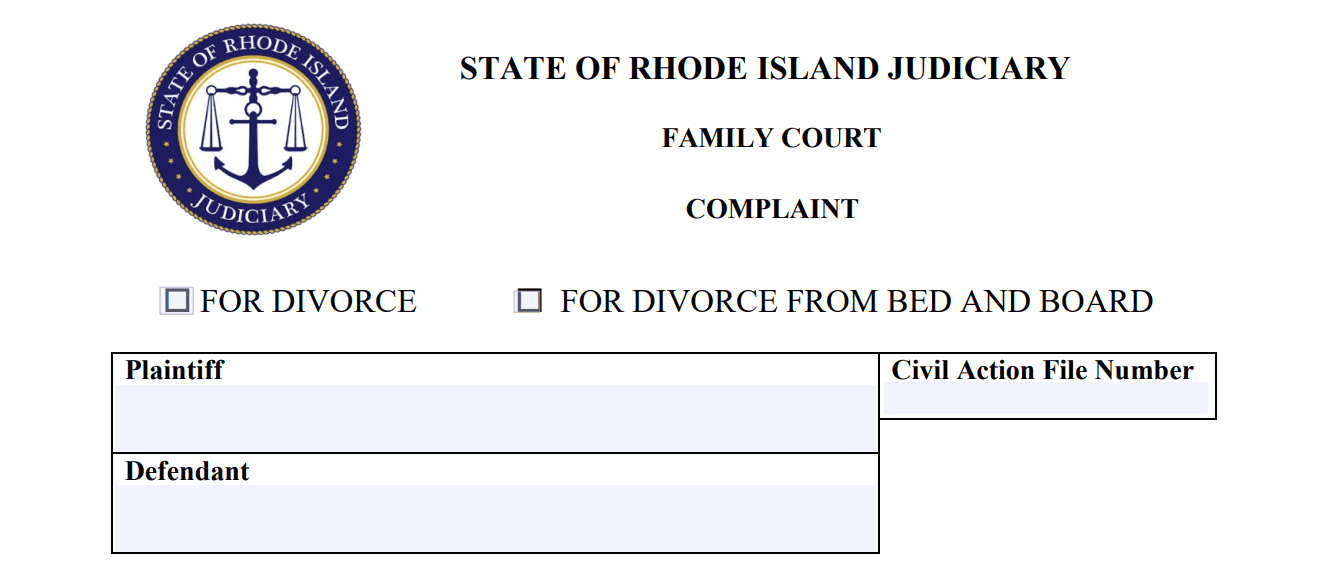Filing for Placement (Child Custody) in Rhode Island
After separation or divorce, disagreements about raising your children are almost inevitable. An order for placement gives you a legally enforceable parenting arrangement so you have fewer disputes.
You'll file a case for placement or divorce with your local family court to request an order. From there, you can file an agreement or let the court decide your case. If you hire an attorney, they will start your case for you.
Forms you'll need
You can find family court forms online or get them from the courthouse.
The parent who starts the case is the plaintiff, while the other parent is the defendant.
The following are required for all cases:
- Complaint for your case type (See below.)
- Summons
- Parenting plan
- DR-6 Form (Statement of Assets, Liabilities, Income & Expenses)
- Statement Listing Children (two copies)
- Birth certificates of all your shared children
- In forma pauperis form (if you can't afford the filing fee)
If you agree on custody, create a parenting plan detailing your arrangements. Attach your plan to a marital settlement agreement if you're divorcing or a Consent Order form if you're not.
Make two copies of each form.
Divorce
At least one spouse must live in Rhode Island for one year before you can file for divorce in the state.
In addition to the above forms, you'll need to fill out a Complaint for Divorce and have a copy of your marriage certificate on hand to give to the court.

Placement only
In addition to the forms for all cases, fill out a Family Court Complaint — Miscellaneous. Specify what types of orders you're requesting from the court, like placement, child support or parenting time.
Turning in your forms
Take your forms to the family court clerk in the judicial complex nearest where you live. They will give you a docket number, an informational packet to serve to the defendant (more below) and a copy of the summons and complaint.
Expect to pay a filing fee of around $160 unless you qualify for a fee waiver.
If you're divorcing, the clerk will tell you your first court date (called a nominal hearing).
If you're not divorcing, a mediator will reach out to you to schedule a mediation session (so long as there's no restraining order).
Informing the other parent
The other parent is informed of the case through a process called service. There are a few methods of service, such as delivering paperwork to them or their lawyer.
After receiving service, the defendant has 20 days to respond. If they don't, the plaintiff can ask the court for a default judgment; the court may give the plaintiff some or all of what they asked for.
Preparing for what comes next
The next step in your case is either mediation or a nominal hearing.
You'll go to mediation if you're not divorcing and neither parent has a restraining order against the other. If mediation is unsuccessful, you'll go to a nominal hearing.
You'll go directly to a nominal hearing if you're divorcing.
At the hearing, the judge will check in on the progress of your case. You could get an order if you have an agreement or requested a default judgment.
Technology can help you prepare for your hearing and the rest of your case.
The Custody X Change online app offers a parenting plan template, custom custody calendars, parent-to-parent messaging, an expense tracker and more. You can use it to put together proposals for the other parent, negotiate, prepare settlement paperwork or organize evidence.
Be prepared for your hearing and every step of your case with Custody X Change.
Our professional sources
The following professionals helped us better understand child custody in Rhode Island and could help you, too.
Brenda L. Ferry
North Providence, RI
Timothy M. Sweet
Greenwich, RI
Additional resources
For more guidance, look to:
